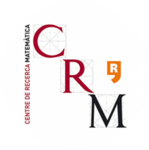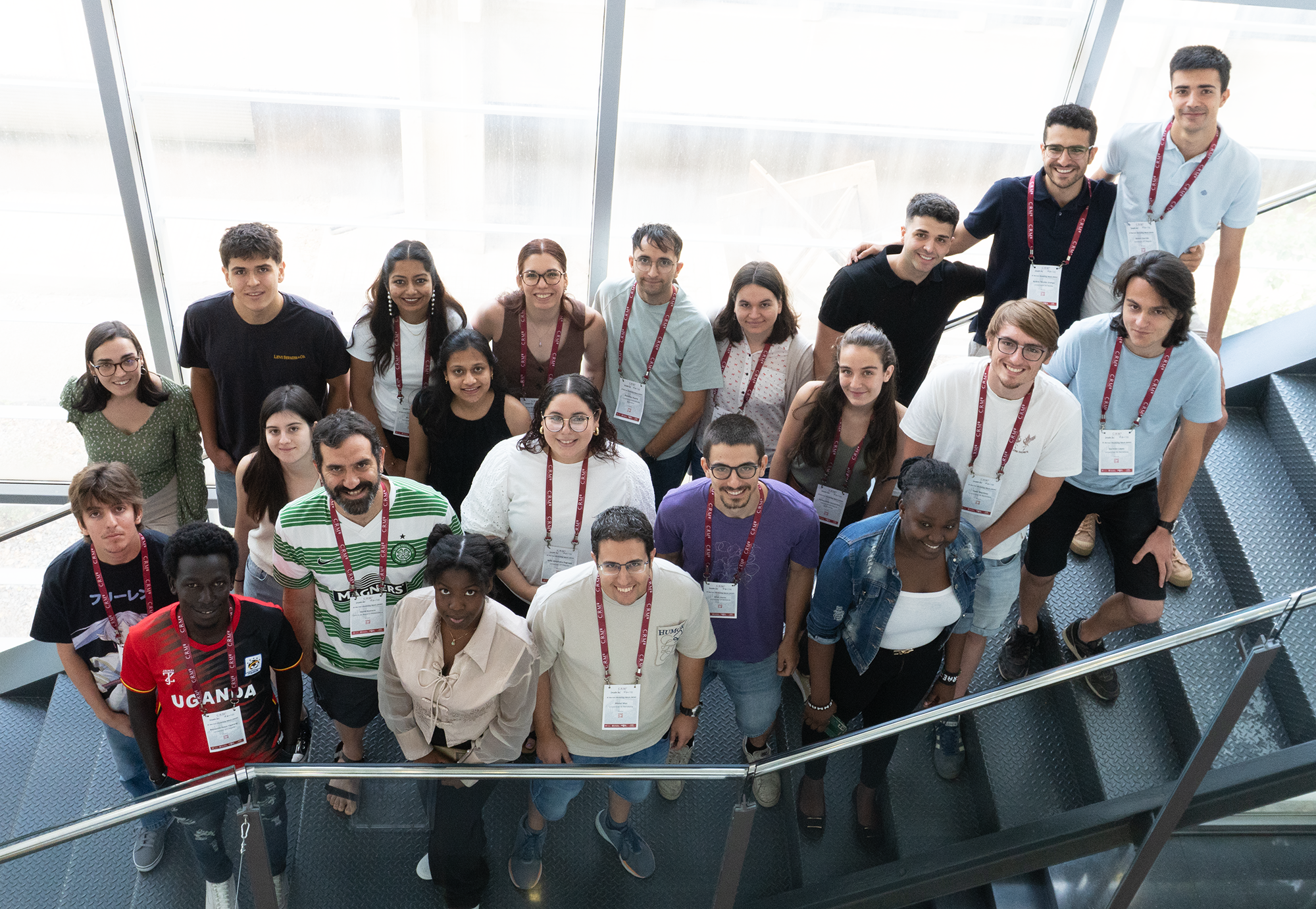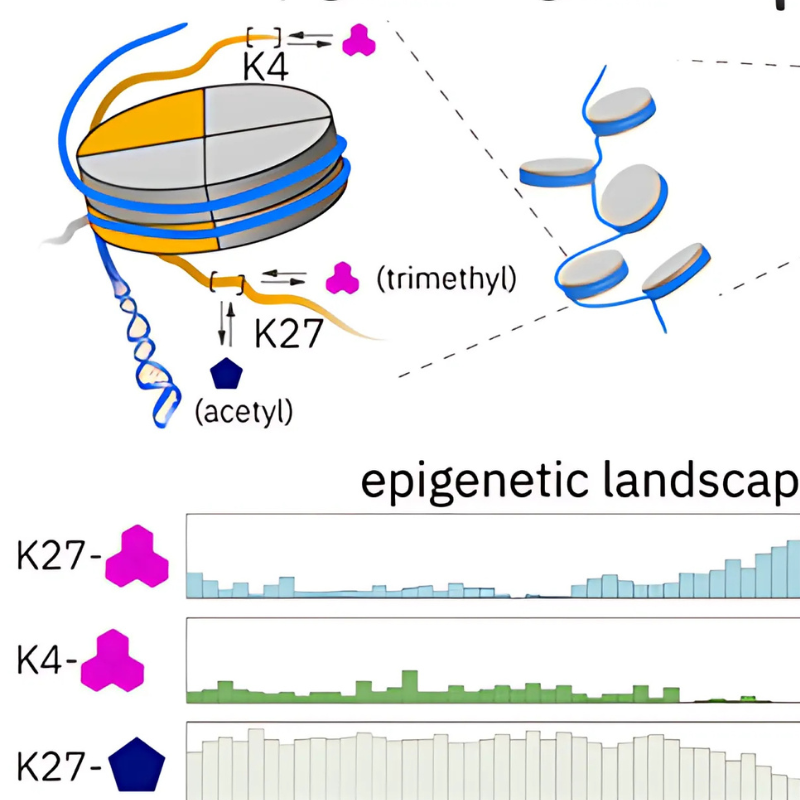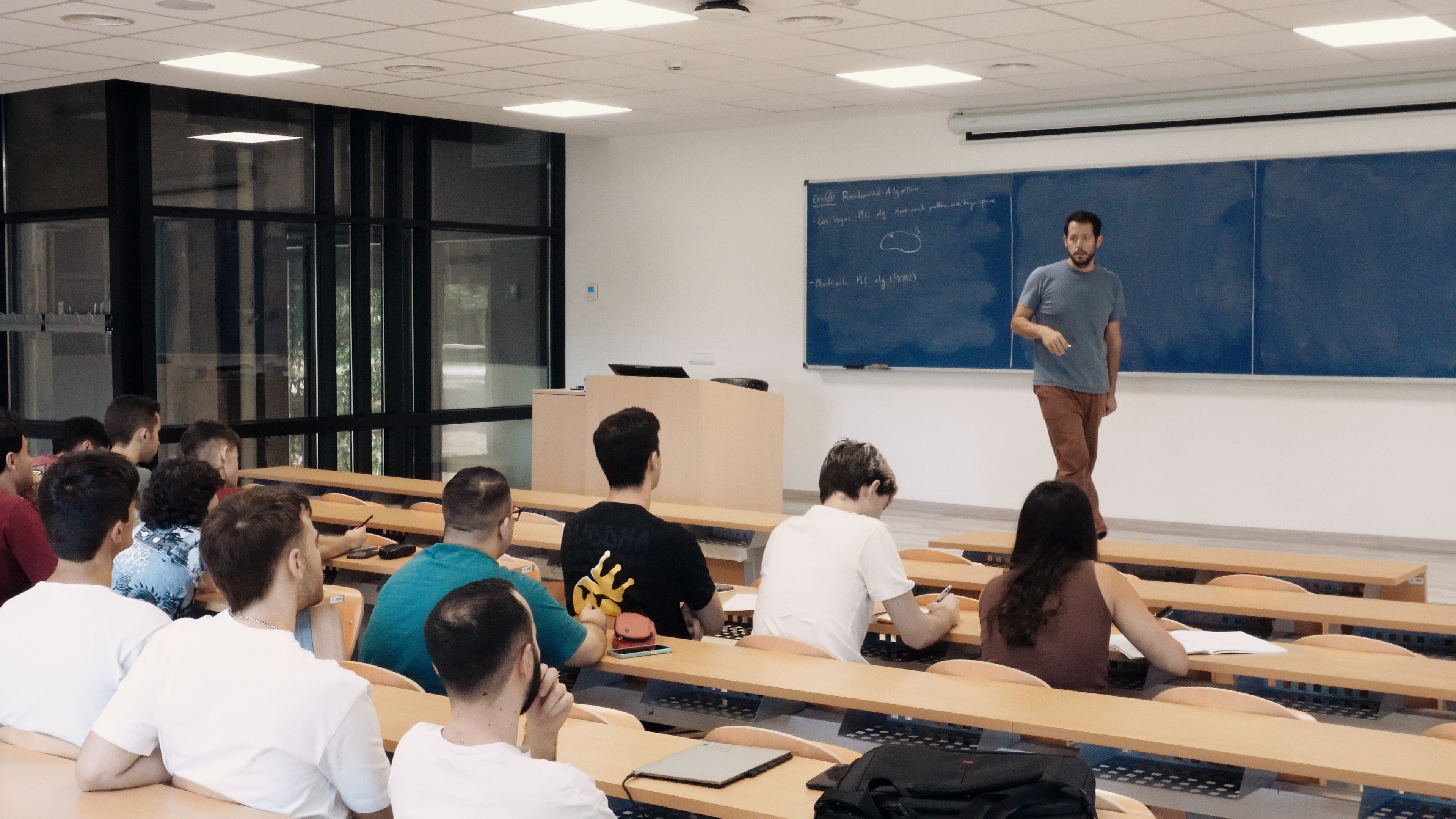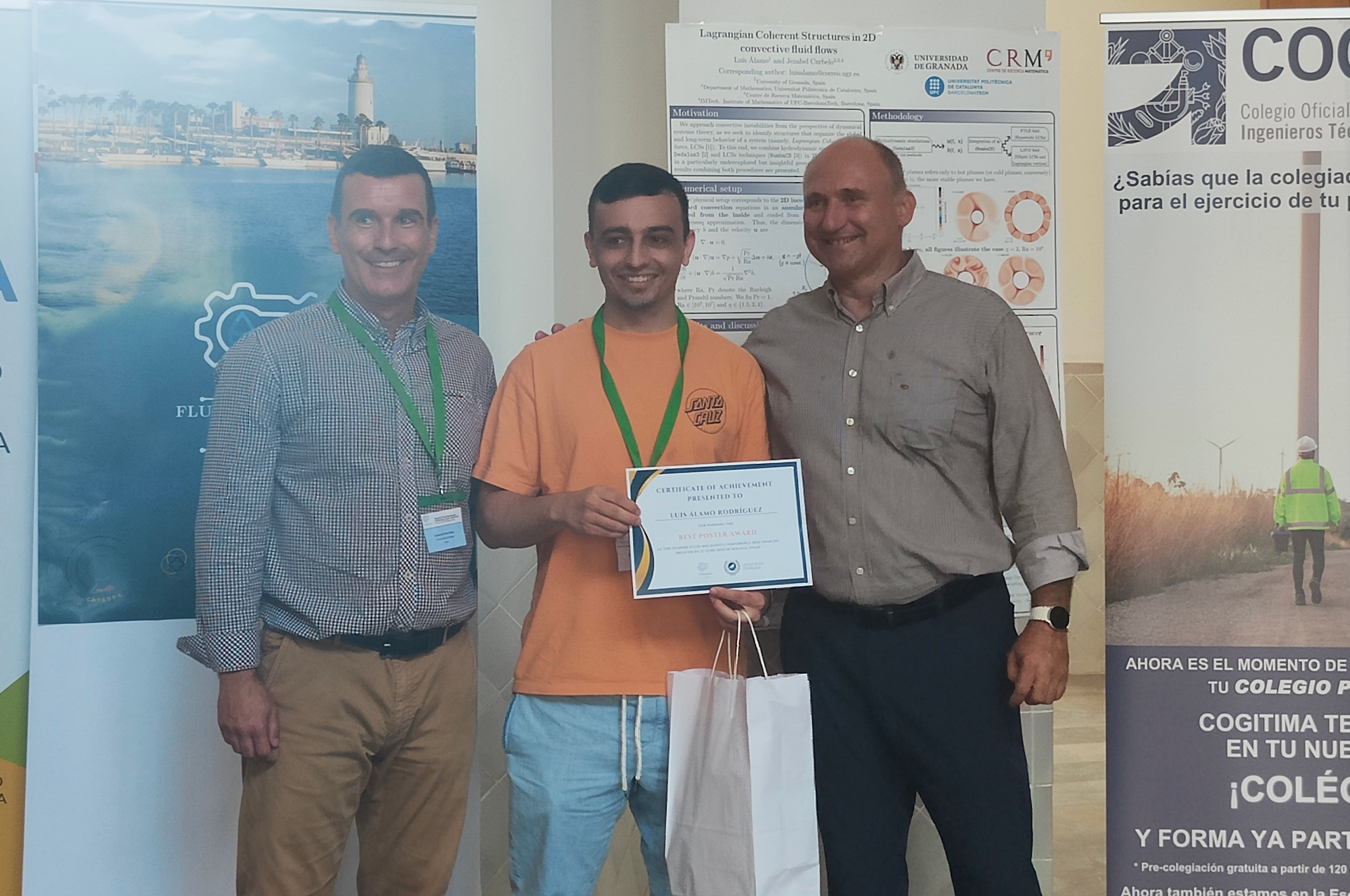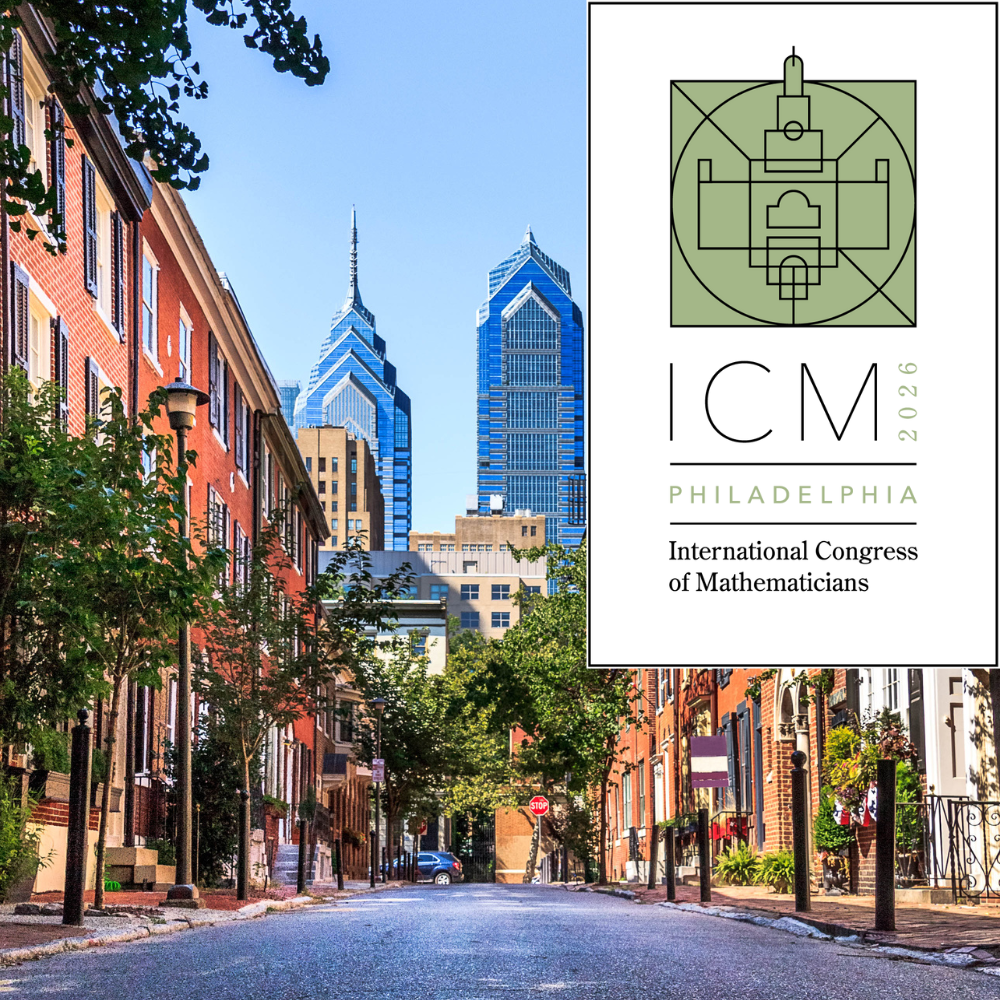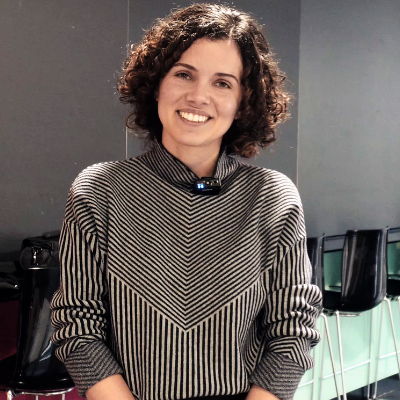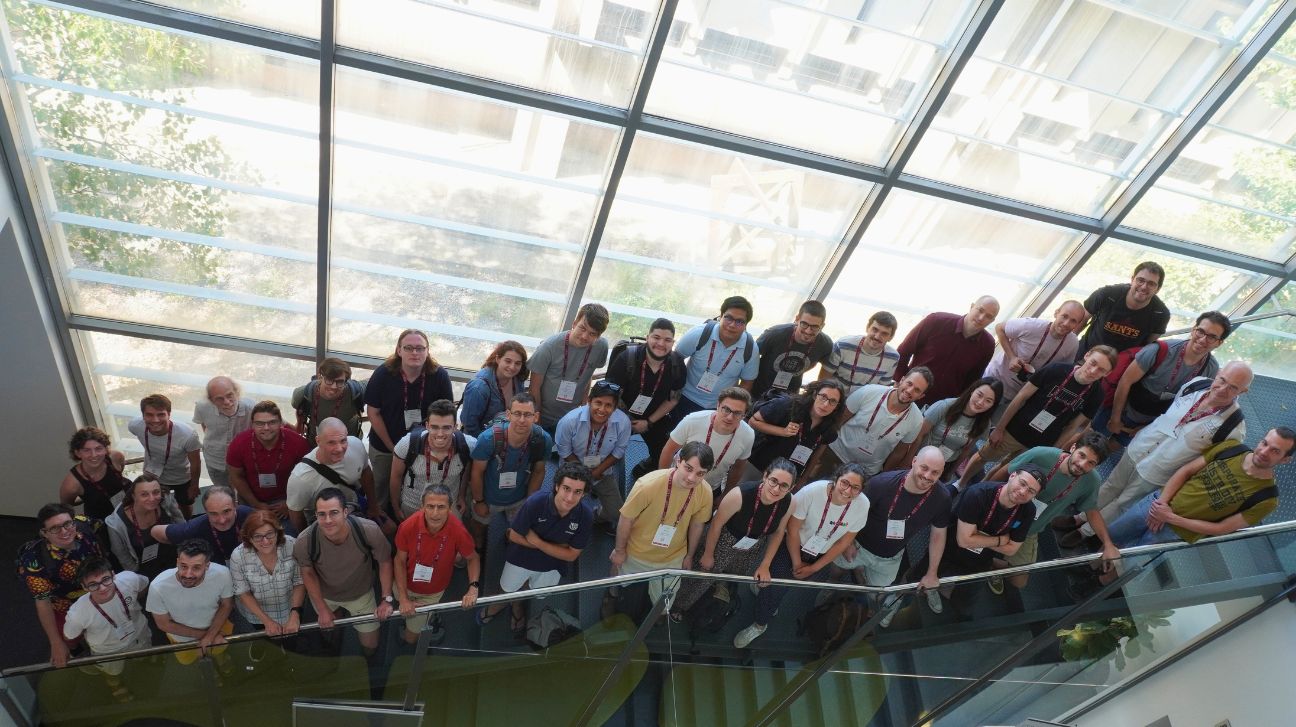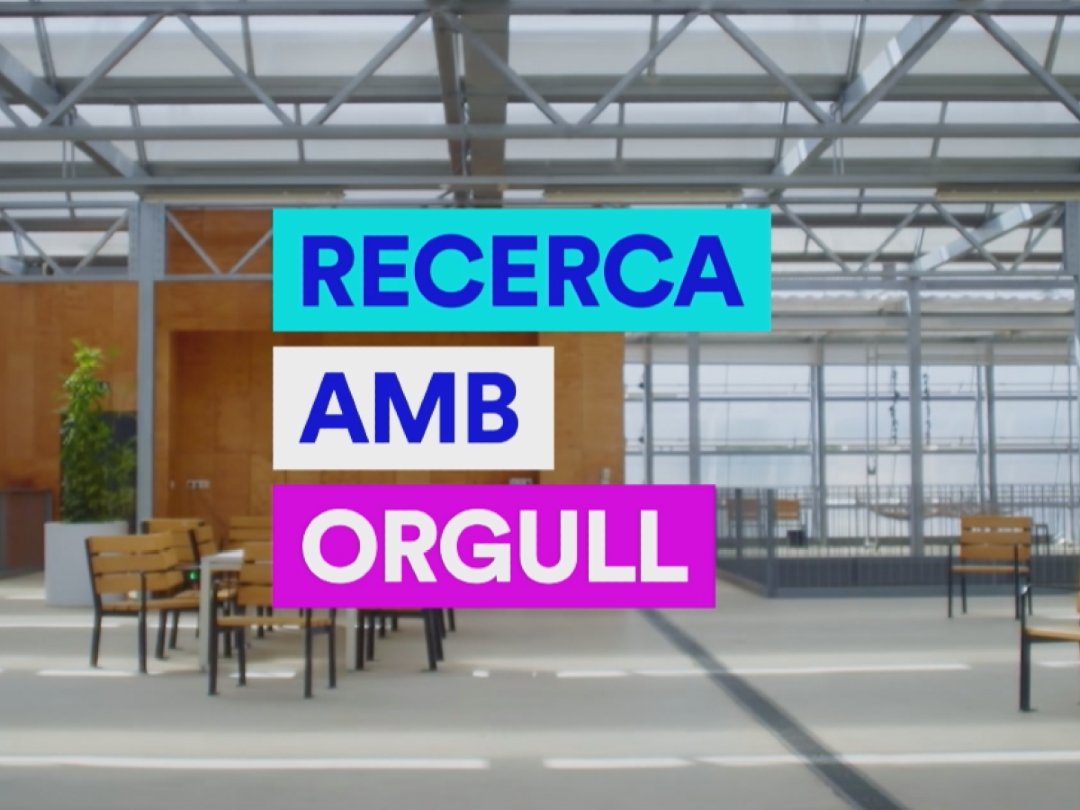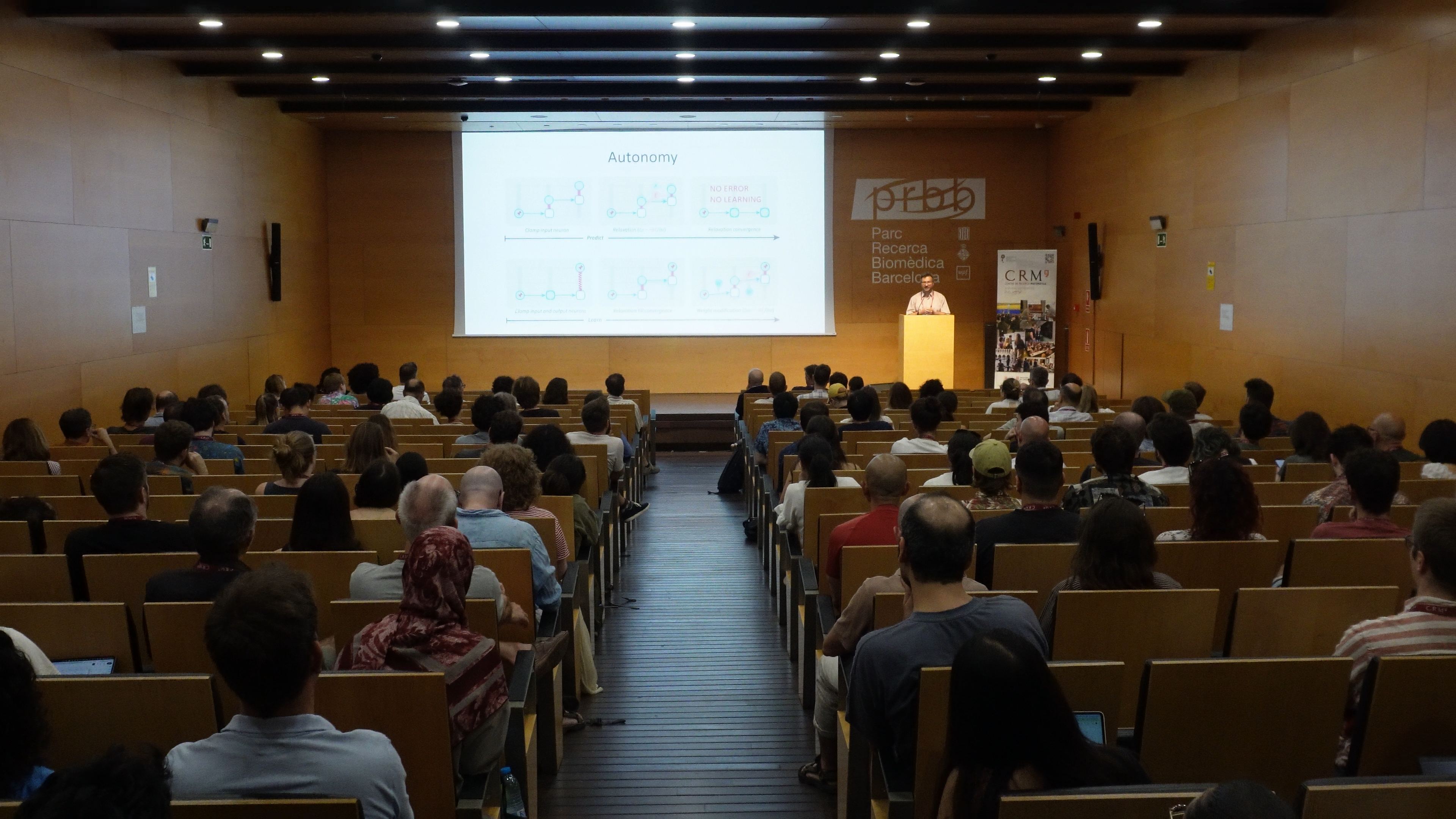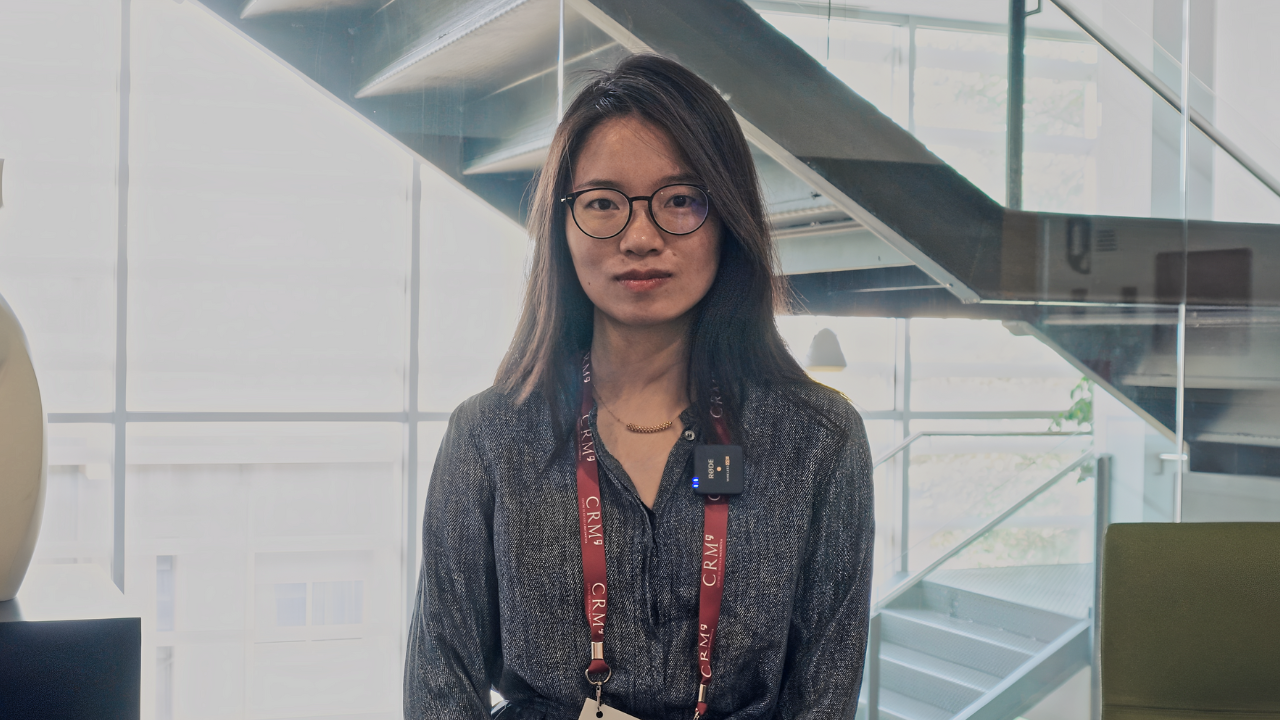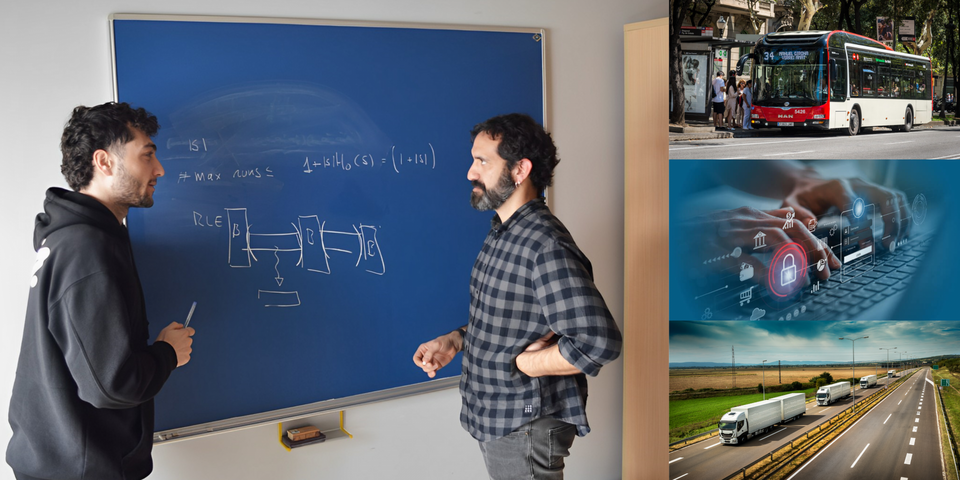
In today’s world, interdisciplinary collaboration is essential for scientific progress, particularly in mathematics. Mathematics plays an increasingly critical role in addressing industrial and societal challenges. The Math-In network, a Spanish initiative, spearheads this endeavour by bringing together mathematicians and professionals from industry and social initiatives. The network encompasses 40 research groups and nodes from universities and research centres across Spain, including the Centre de Recerca Matemàtica (CRM).
Founded in 2011, the Red Española Matemática-Industria (Math-in) aims to connect mathematicians with industry and society to facilitate the transfer of mathematical knowledge and expertise. The network serves as a bridge between academic research and real-world applications, addressing pressing issues in various sectors, including healthcare, energy efficiency, and environmental sustainability.
“Math-In seeks to connect research groups and/or transfer units from various universities with a clear commitment to transferring mathematics to industry, but also to society at large,” explains David Romero, head of the Knowledge Transfer Unit (KTU) at CRM. “This is done by inviting companies to present their problems to members of the network, enabling different research groups to propose solutions for specific real-world challenges. Additionally, Math-In works to foster synergies among the groups to tackle more complex projects.”
David Romero, who also serves as the treasurer of Math-In, acknowledges the challenges that the network faces. “Researchers are primarily tasked with producing research outputs, such as scientific papers. Engaging them in knowledge transfer activities and projects requires establishing mutually beneficial collaborations. Moreover, Math-In needs ongoing resources to maintain its operations. Efforts like Math-In are also crucial for promoting knowledge transfer at the academic level, ensuring that undergraduate and master’s students recognize knowledge transfer as a viable aspect of the research career.”
Regarding the impact of promoting knowledge transfer activities among students, Romero adds that “some students may be more inclined to pursue a PhD in mathematics if they are aware of the relevance of knowledge transfer. Why not pursue an industrial doctorate, where the student has the opportunity to collaborate with industry? The ‘industrial’ adjective doesn’t make the doctoral program any better or worse; it simply means that the research is more focused on applications for specific industrial problems. Many problems from industry are intriguing to approach from a mathematical perspective.”
Expanding the Reach of the CRM Knowledge Transfer Efforts
Participating in Math-In aligns with one of CRM’s strategic goals: developing innovative mathematical solutions grounded in rigorous theoretical research for real-world applications. The centre particularly emphasizes tailoring well-founded models to solve emerging problems with significant societal impacts. This approach leverages proven mathematical research to create concrete solutions that effectively address pressing societal challenges.
“Being part of the Math-In network helps us expand our network beyond our immediate area of operation,” Romero explains. “This means we have the opportunity to find collaborative projects with companies and institutions from other parts of Spain and also to connect with other networks operating at a European level.”
CRM has successfully participated in major projects through Math-In. “Currently, we are working on a logistics sector project that involves the CRM and research groups from other institutions. This collaboration has also opened doors to connect with institutions and groups that we might not have been able to collaborate with otherwise.”
CRM’s philosophy is that almost every problem can be approached mathematically. The centre’s involvement in Math-In focuses on developing bespoke mathematical models that accurately reflect the unique challenges faced by enterprises across various sectors. This process begins with a deep dialogue between CRM mathematicians and industry professionals to ensure a thorough understanding of the specific issues at hand.
This customized methodology extends from problem formulation to simulation and numerical analysis, providing targeted solutions. Areas such as cost optimization, algorithm design, task allocation, logistics, and data analysis are just a few examples where CRM’s expertise has been instrumental.
“It is a well-known adage that mathematics is everywhere,” Romero remarks. “But what do we mean when we say that? When evaluating knowledge transfer efforts in research, people often focus on quantifiable metrics, such as the number of spin-offs. However, when it comes to transferring knowledge in mathematics, the results of that knowledge may take time to be visible. The outcome is not always straightforward.”
Collaboration Beyond Problem-Solving
CRM’s collaboration with industry partners goes beyond problem-solving. The centre offers specialized training on specific topics and participates as an academic partner in competitive innovation projects. This multifaceted approach not only solves immediate challenges but also equips businesses with the knowledge and tools to leverage mathematical methods independently. CRM’s involvement in the Math-In network is not in isolation. Being part of the CERCA network and its status as a system centre provides CRM with access to a broader spectrum of research facilities and expertise. This integration enriches the projects undertaken by CRM, offering a more comprehensive and multidisciplinary perspective.
“One of the biggest challenges we face in our work is finding a suitable counterpart on the other side of the table,” Romero explains. “By that, I mean someone who not only cares about the outcome of a given project but also about the process itself. We try to avoid projects where the sole objective is to make a product. We believe that knowledge generation is an integral part of knowledge transfer, and for that, we need to work with people who share this same value. We also strive to create a common language so that people from different expertise levels and backgrounds can find it easier to collaborate. In particular, through Math-In, we advocate for finding ways to collaborate with research institutions from other scientific fields outside of mathematics.”
CRM’s commitment to bridging mathematics and real-world applications is exemplified by its participation in the Math-In network. This initiative demonstrates the centre’s dedication to leveraging mathematical expertise to address pressing societal challenges and contribute to innovation and progress.
Subscribe for more CRM News
|
|
CRM CommPau Varela & Mariona Fucho
|
From Real Problems to Mathematical Applications: A Chronicle of the XI Iberian Modeling Week
From July 7 to 11, the CRM became a hub for collaborative problem-solving during the XI Iberian Modeling Week, an international training initiative that brought together nearly 30 students from diverse academic backgrounds to tackle real-world...
The Way DNA Folds Might Help Explain How Cells Decide What to Become
A new study by researchers from the University of Edinburgh, Oxford, and CRM reveals how the 3D structure of DNA and a microscopic molecular tug-of-war shape the identity of every cell in our...
The CRM hosts a new edition of the Barcelona Introduction to Mathematical Research summer school
From June 30 to July 25, 2025, the CRM is organising a new edition of the Barcelona Introduction to Mathematical Research (BIMR), a summer school hosted at the Universitat Autònoma de Barcelona. The programme brings together 30 undergraduate...
Niclas Rieger defends his PhD thesis on data-driven climate analysis and marine pollution
Niclas Rieger defended his PhD thesis at the Institut de Ciències del Mar, culminating a research journey focused on extracting insights from both massive climate datasets and scarce environmental observations. Developed within the European CAFE...
A Day of Higher Structures in Symplectic and Poisson Geometry, with Summer Tapas at UPC Barcelona
The event "A Summer Tapas Invitation to Higher Structures in Symplectic and Poisson Geometry I", held on July 7, 2025, at EPSEB–UPC, featured talks by Alejandro Cabrera, Chenchang Zhu, Miquel Cueca, and Mario Garcia-Fernandez, offering a rich and informal exploration...
Luís Álamo, premi al millor pòster a la SFMC 2025 per un treball dirigit per Jezabel Curbelo
Luís Álamo, estudiant del màster FISYMAT de la Universitat de Granada, ha guanyat el premi al millor pòster a la conferència 3rd Spanish Fluid Mechanics Conference (SFMC25) amb un treball sobre estructures coherents Lagrangianes, basat en el seu...
Three CRM Researchers Invited to Speak at the 2026 International Congress of Mathematicians
From left to right: Xavier Cabré, Joaquim Ortega (photo by Xènia Fuentes, UB), and Xavier Tolsa. Three researchers affiliated with the Centre de Recerca Matemàtica (CRM), Xavier Cabré, Joaquim Ortega-Cerdà and Xavier Tolsa, have been invited to...
Gissell Estrada, beca Leonardo 2025 per explorar la migració col·lectiva amb matemàtiques i robots
L’investigadora Gissell Estrada Rodríguez, professora a la UPC i adscrita al CRM, ha rebut una Beca Leonardo 2025 per desenvolupar un projecte que combina matemàtiques i robòtica per estudiar la migració col·lectiva en sistemes vius i artificials....
JISD 2025 – Where Dynamical Systems Meet PDEs
JISD 2025, held at the Centre de Recerca Matemàtica (CRM) from June 30 to July 4, 2025, featured four advanced minicourses delivered by Dmitry Dolgopyat (on averaging and Fermi acceleration in dynamical systems), Serena Dipierro (on the theory of nonlocal minimal...
CERCA llança la campanya “Recerca amb orgull” per promoure la diversitat LGBTI+ en la ciència
La institució CERCA ha llançat la campanya “Recerca amb orgull” per promoure la visibilitat i la inclusió de les persones LGBTI+ en l’àmbit científic. Amb el lema “Als centres CERCA, fem ciència amb diversitat”, la iniciativa denuncia les...
ICMNS 2025: Ten Years of Mathematical Neuroscience, Celebrated in Barcelona
The 10th edition of the International Conference on Mathematical Neuroscience (ICMNS 2025) gathered more than 150 researchers from over 25 countries at the PRBB in Barcelona. Organised by the CRM and UPC, with the support of UPF, the event...
Hong Wang: On Solving Kakeya and Rethinking Restriction
At the Modern Trends in Fourier Analysis conference held at the Centre de Recerca Matemàtica, mathematician Hong Wang (NYU Courant) presented a new approach to the Stein restriction conjecture, connecting it with geometric incidence problems...

